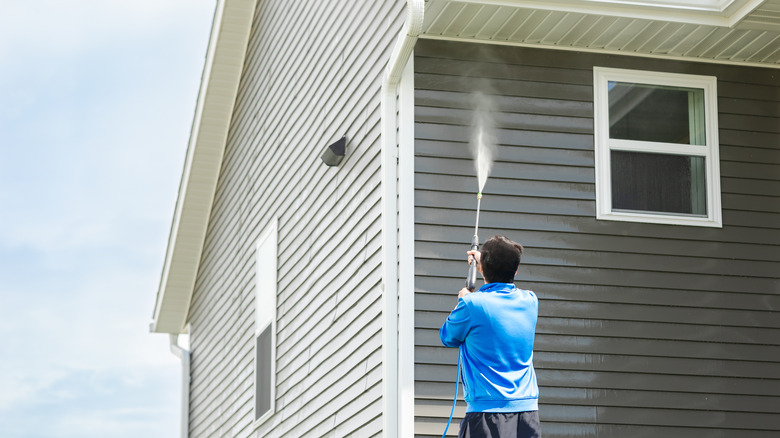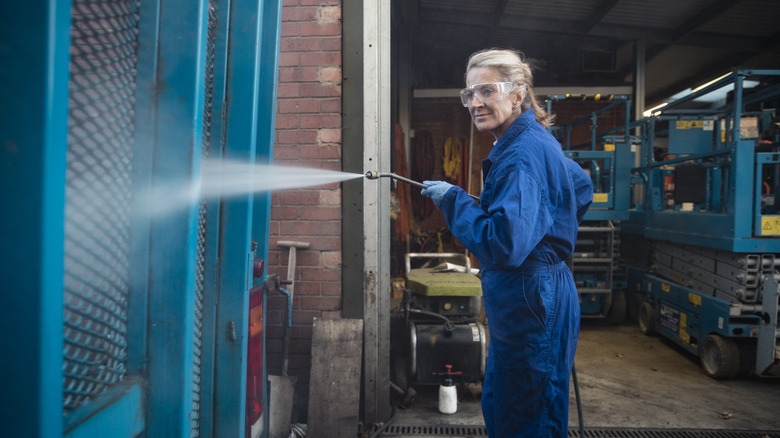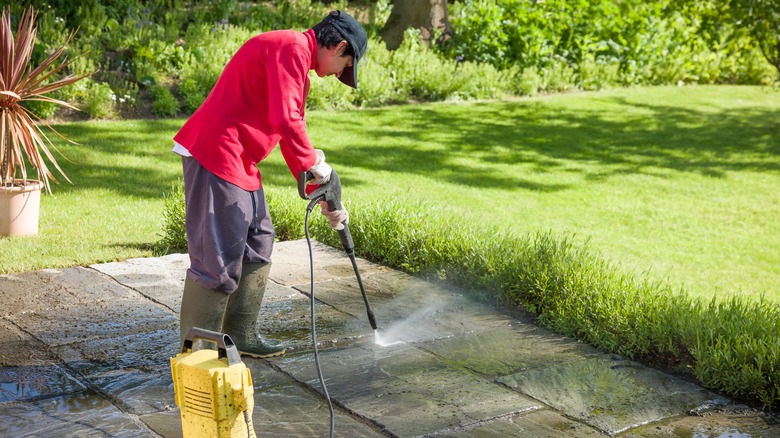When To Soft Wash Instead Of Pressure Wash
Pressure washing the house's exterior has become a standard practice for many homes, and it's easy to see why. If you pressure wash your home once a year, you'll keep your siding, walkways, deck, concrete, brick, trim, and other outdoor surfaces looking almost new for decades. This method relies on a high-pressure water spray between 1,300 and 3,100 pounds per square inch (PSI) to remove everything from loose paint, mold, and mud to dust, dirt, and grime.
Pressure washing works perfectly with many different materials, but on delicate surfaces that could easily get damaged by the high PSI, soft washing tends to be the recommended option. This method uses pressure washers with particular nozzles attached to reduce their PSI. It relies on a powerful chemical solution that includes a fungicidal agent to get rid of mold and mildew more reliably than with a pressure washer. If you want to know when you should pressure wash and when you should soft wash instead, we'll present some clarification in this short piece.
Which surfaces should you soft wash?
Soft washing is the recommended option if your surfaces are delicate. First, take a look at your siding. Some siding materials, including vinyl, cedar shake, or wood panel siding, are much more fragile than others and shouldn't be power washed. Washing with a low PSI will clean any contaminants on these surfaces without causing any damage.
Wood fences should also be soft-washed if possible. Although your wood fences can withstand high-pressure water beatings, really high PSI could peel away the paint coat that protects the wood from the elements. If you're unsure, just soft wash it.
Stucco surfaces are also washable, but not with high PSI sprays. If you have a dirty stucco surface, soft washing it will make it look like new while keeping its texture. Additionally, windows and window screens shouldn't be pressure-washed either; this is pretty self-explanatory, as these surfaces shouldn't deal with high-pressure impacts.
Finally, your roof should only be soft-washed. While some think you could quickly pressure wash your shingles, the high PSI might weaken their adherence and knock some of them off. Definitely not recommended.
Which surfaces should you pressure wash?
While soft washing is highly effective, high-pressure washing is the ultimate alternative for materials that can withstand it, primarily your concrete surfaces. Driveways and patios will significantly benefit from annual deep cleaning sessions with pressure washers. You'll be surprised at how much dirt can be peeled off your "clean" concrete.
Wooden decks can also be pressure-washed if professionals do it. While high PSI could potentially go through the protective coating, wooden decks look perfect after being pressure-washed by an expert who knows how to handle their washer correctly. Additionally, any siding made of durable materials can also be pressure-washed. If you have brick, hardwood, or metal siding, pressure washing is the way to go.
Although pressure and soft washing are both completely viable options for maintaining your house's exterior, each offers different advantages. Take a look at your exterior surfaces before making the right decision according to your needs, but never stop deep cleaning your house.


